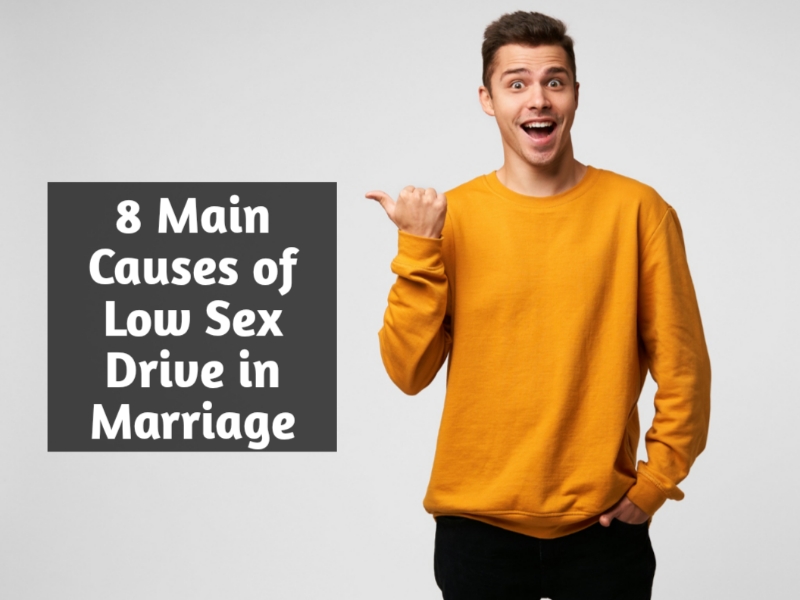Problems with sexual desire are observed even in seemingly prosperous families. The couple has no conflicts, and health is also normal, but there is no intimacy, or it is very rare.
To the question asked, when the last sexual contact was, the client finds it difficult to answer; he thinks and begins to remember.
Although more recently, intimate life was emotional, vibrant and very stormy.
So, what caused the cooling of relations?
Low sexual desire can affect both men and women when you do not want sex at all.
A person’s interest in sex often fluctuates in different periods of life due to hormonal changes, age and stress.
8 Main Causes of Low Sex Drive in Marriage
Loss of original passion- In the early stages of a relationship, infatuation and love lead to chemical changes in the brain that increase the level of passion and sexual desire.
Sexual problems resulting from childhood trauma, negative attitudes, sexual inhibition or decreased libido can be temporarily overwhelmed by the initial feelings of the relationship, and along with the chemical reaction, the feelings and sexual problems subside.
Disputes and complaints- Conflict and outright hostility in long-term marriages can lead to decreased passion and sexual desire.
Some people feel relieved after a verbal fight, while others build up emotional anger that “turns off” their sexual desires as a result.
Lack of emotional intimacy- For women, sexual desire is associated with romantic relationships. Women have an urgent need for emotional intimacy before sex, and men have such a need after sex.
Separation of love and sex- Couples in egalitarian, communicative, and comfortable relationships feel little sexual attraction and rarely have sex if they perceive their relationship as platonic and not sexy or romantic.
Distance, novelty, mystery and danger characterize burning sexual feelings, so long associations and reassurances can suppress and extinguish feelings.
Lack of attraction- Obvious reasons for avoiding intercourse is poor personal hygiene, weight gain and lack of physical attractiveness due to the inability to wear attractive clothes for the partner. They do not enjoy seeing, touching or kissing their partners.
A component of DNA is part of a chemical reaction between two people that may be missing. It’s a sad trick of nature that we are most attracted to people whose dna is almost the opposite of our own.
Thus, we can be attractive to people who do not look and behave in a standard way but with whom it is very difficult to find a common language due to a mismatch of interests and a mismatch of life values.
Sexual problems- If sexual relationships are non-sensual and unsatisfying, then the sexual desire diminishes over time.
Women who have not achieved orgasm and men with premature ejaculation or erectile dysfunction may find sex uncomfortable and thus avoid intimacy.
Constantly arguing about how many times a week to have sex (and each partner has their own frequency) can lead to a cessation of sexual intimacy if you are practically patient.
Hormonal changes- Due to hormonal changes in the body, a woman sometimes loses her desire, and sometimes there is discomfort during sex: dryness or even pain.
This can be combated with lubricants. The good news is that good sex continues after menopause.
Individual psychological problems- Sexual desire is often affected by work stress, personal sadness, fatigue, anxiety and depression.
People who were sexually, emotionally or physically abused in childhood or who grew up in families where sex was seen as bad and undignified may see their sex life as intimidating or abusive.
Marriage is said to be the grave of passion, assuming that long-term couples experience a decline in sexual desire.
While one must accept a change in desire over time, including a decrease in it, on the other hand, one must beware of erroneous stereotypes about a couple’s sex life.
You can visit sexologists to understand what is affecting your sexual desire and its solution!

